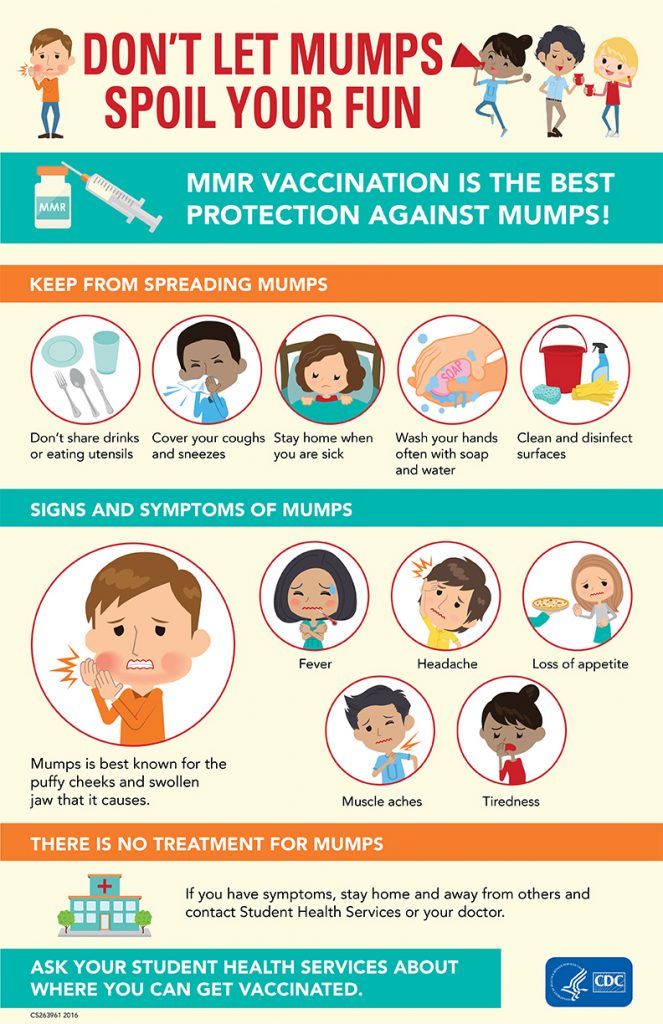The University of Rhode Island (URI) Health Services, in a communication notice published Tuesday said that four URI students on the Kingston Campus have mumps.

Clinicians at the Rhode Island Department of Health and the staff and medical professionals at Health Services are carefully monitoring the situation and are prepared to help. Health Services is advising everyone to be aware of the signs and symptoms of this virus. Two doses of mumps vaccine protects approximately 9 of 10 people who receive it.
All appropriate measures, as recommended by the Rhode Island Department of Health and the U.S. Centers for Disease Control and Prevention, have been and are being followed.
Mumps spreads through saliva or mucus from the mouth, nose or throat. It can be spread by coughing or sneezing, sharing items such as cups and eating utensils, or even by touching objects or surfaces that have been touched by infected persons.
Symptoms usually appear 16-18 days after being infected with the mumps virus, but can range from 12-25 days after being infected.
Symptoms typically begin with body aches, loss of appetite, fatigue, headache, and low grade fever, and progress to parotitis (swollen parotid salivary gland/s). Parotitis can be one-sided or occur on both sides. Earache on the side of parotitis and discomfort with eating acidic foods are common. Fever usually resolves within 3 to 5 days, and parotitis resolves within 7 to 10 days. Some people with mumps will experience very mild symptoms or no symptoms.
A person with mumps is contagious 2 days before through 5 days after parotitis onset.
Complications of mumps include testicular inflammation in males, ovarian inflammation in females, aseptic meningitis (inflammation of the lining of the brain), and rarely encephalitis (inflammation of the brain), pancreatitis, deafness, and death.
Related:
- Zika: Mild epidemic in the US could cost in the hundreds of millions
- Florida: Public health emergency for opioid epidemic directed
- Measles outbreak nears 2000 cases in Italy
- Colombia: Leishmaniasis outbreak prompts health alert in Neiva
- Miss Universe 2015, Pia Wurtzbach, appointed Goodwill Ambassador for UNAIDS-AP


One thought on “University of Rhode Island reports 4 mumps cases in students”